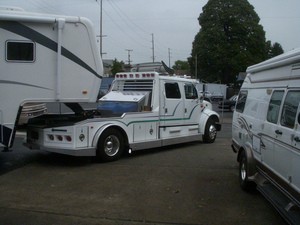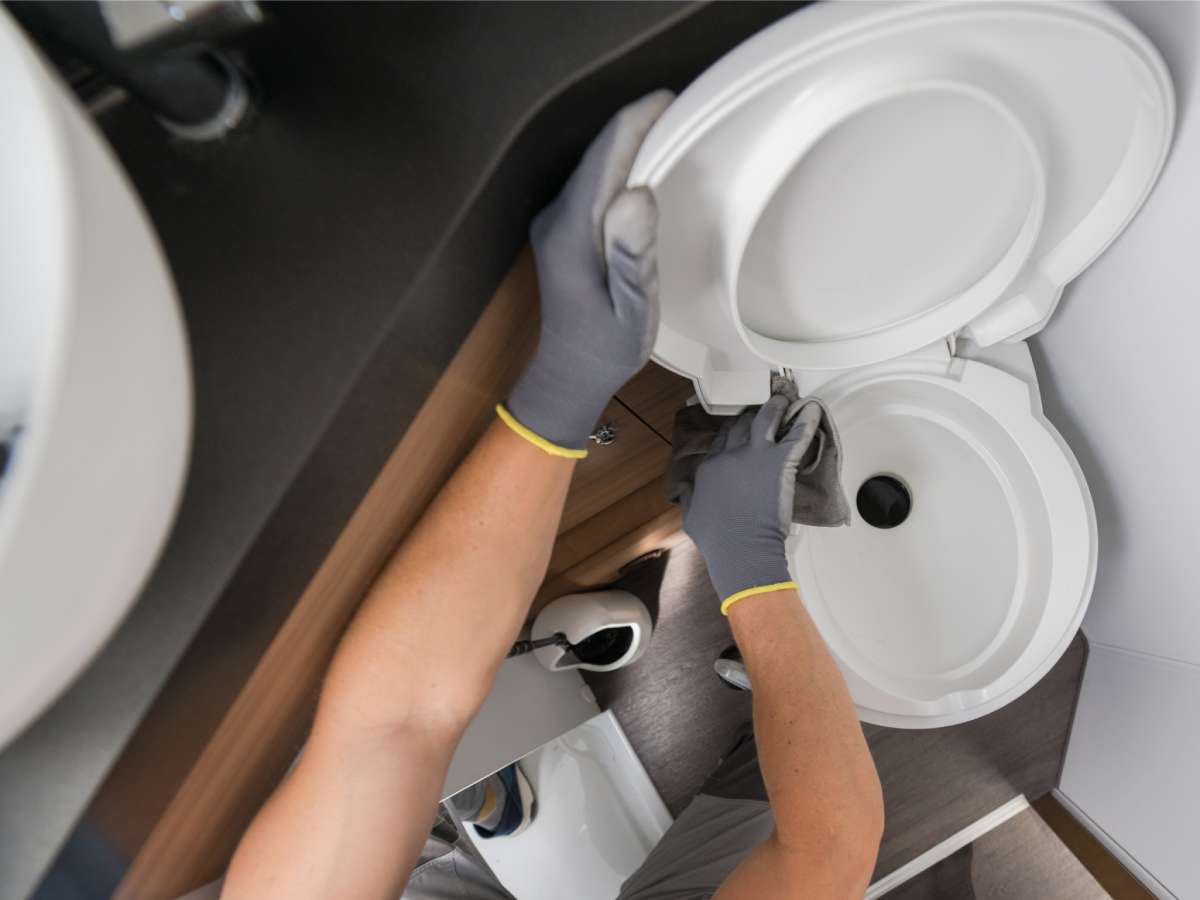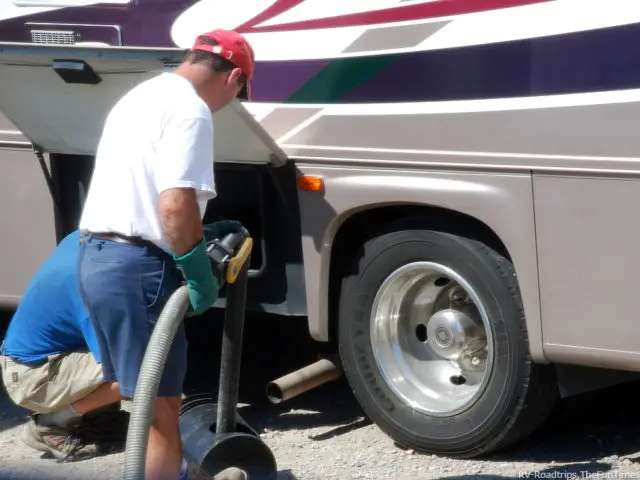 Is your current RV truck really the best choice, when you look at it from a safety point-of-view?
Is your current RV truck really the best choice, when you look at it from a safety point-of-view?
Today’s large 5th wheel rolling condos can easily top the scales at 15,000 pounds — even more, if you didn’t pay attention to gross weight limits after you loaded your possessions.
Sure, that diesel pickup truck has enough power to get it up to highway speeds, but what happens when things go wrong? Bringing all that weight to a safe stop is another matter.
Electric trailer brakes fail, trailer cords come unplugged, just going down a long decline like Grapevine Hill in California can cause your brakes to fade away.
Here are the pros and cons of towing your RV trailer with a large RV truck…
Advantages Of A Larger RV Truck
When you place a 20,000-pound trailer behind a larger RV truck like a medium duty or heavy duty truck, you have barely scratched the surface of its capabilities. The truck’s massive size gives it a more solid foundation, when it comes to towing your traveling home.
The physical size of the brake components are 2 to 3 times larger than what you have on a 1-ton pickup truck. The truck’s weight alone means a good stiff crosswind won’t drag your RV trailer back and forth across the highway. In fact, if the trailer brakes fail altogether, you might not even feel it.
Many converted heavy duty trucks are set up as RVs on their own. By doing this, you can register the truck as a recreational vehicle, avoiding the much higher GVWR licensing structure normally used on commercial trucks.
Disadvantages Of A Larger RV Truck
 The larger the truck, the more fuel it will require. Your pickup truck might get 15 miles per gallon or better, whereas a larger truck will get well under 10 miles per gallon.
The larger the truck, the more fuel it will require. Your pickup truck might get 15 miles per gallon or better, whereas a larger truck will get well under 10 miles per gallon.
The cost of maintenance will be much higher as well. So will the cost of normal wear items — like tires and filters.
You can’t take a medium or heavy duty truck to Jiffy Lube for 5 quarts of oil and a $2 oil filter. Instead, a trip to a truck stop will set you back $150+ to have your truck serviced.
A Big Truck Lasts Longer, Rides Better & Increases Your Safety
- Today’s heavy duty trucks are designed to go 500,000 miles before you even consider any level of serious engine maintenance. You will likely go 1,000,000 miles before the first overhaul. That means for the average RVer, one truck could last a lifetime!
- With air ride suspension and interior upgrades, spending the day behind the wheel of a large truck is no more tiring than driving the family sedan.
- When it comes to hauling a load at highway speeds, it’s always nice to know you have power to spare — both stopping power and going power.
- With the price of new 1-ton pickup trucks in the neighborhood of $50,000, investing in a good secondhand medium or heavy duty truck is an option worth considering. Many full time RVers never really accumulate much mileage on their medium duty RV trucks. It’s always the first owner that takes the hit on depreciation. Likewise, commercial fleets usually upgrade their fleet long before trucks become a maintenance problem. There is still a lot of life left in many of their discarded trucks.
- Besides, when it comes to cruising down the highway and looking good, these larger RV truck and 5th wheel rigs are just plain cool looking.
This video gives you a quick tour of a Freightliner sports chassis RV truck:



